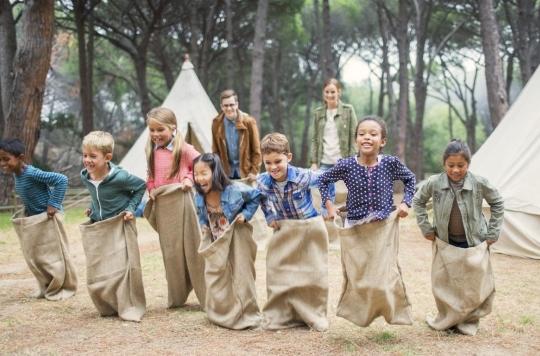Attending summer camps promotes the development of social-emotional skills and altruism, according to a recent study.

- Social-emotional skills allow us to make decisions that are favorable to our well-being and to form quality relationships with others.
- They can be acquired in various contexts such as school, family or leisure.
Learning to live in a community, widening one’s social circle, practicing new sports or other artistic activities… Summer camps offer many benefits to children. These stays also allow them to develop essential values and skills, such as self-confidence, autonomy, tolerance, politeness or even sharing, which play an essential role in daily life. Summer camps also encourage children to show altruism, according to researchers from the University of Geneva (Switzerland).
Summer camps: “spaces for socialization and experimentation outside the family”
To reach this conclusion, they carried out a study, the results of which were published in the journal Plos One. As part of this work, scientists explored the link between participation in colonies and the level of altruism and self-esteem of children.
“These holiday camps are spaces for socialization and experimentation, outside the family, which take place over time and integrate all of daily life. They involve permanent interactions with adults and other children, rich in learning informal”, explains Edouard Gentaz, author of the study, in a statement.
An increase in the level of altruism in children who have been to summer camp
In order to carry out their research, the team recruited 256 children between the ages of 6 and 16. The young participants had to answer a questionnaire twice: before and after participating in a summer camp, which lasted two weeks. Their answers were compared to those of 111 children who did not go to summer camp.
According to the results, an increase in the level of altruism was observed in children who spent several days in summer camp. “As for the level of self-esteem, we observe that it remained stable in both groups of children. It is possible that this element is more stable than altruism and that its modulations are therefore less apparent. “response scale we used may not be specific enough to assess this data”, said Yves Gerber, author of the study. Now, the authors want to assess whether there is a link between the length of stay and the level of benefits.
















